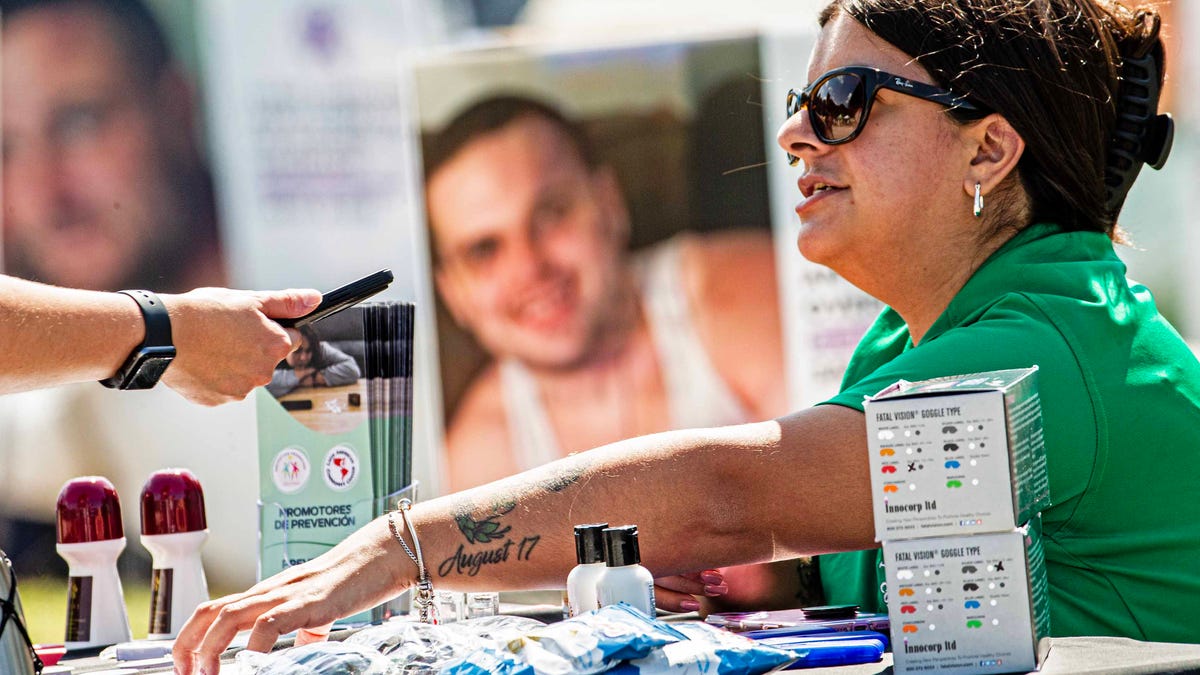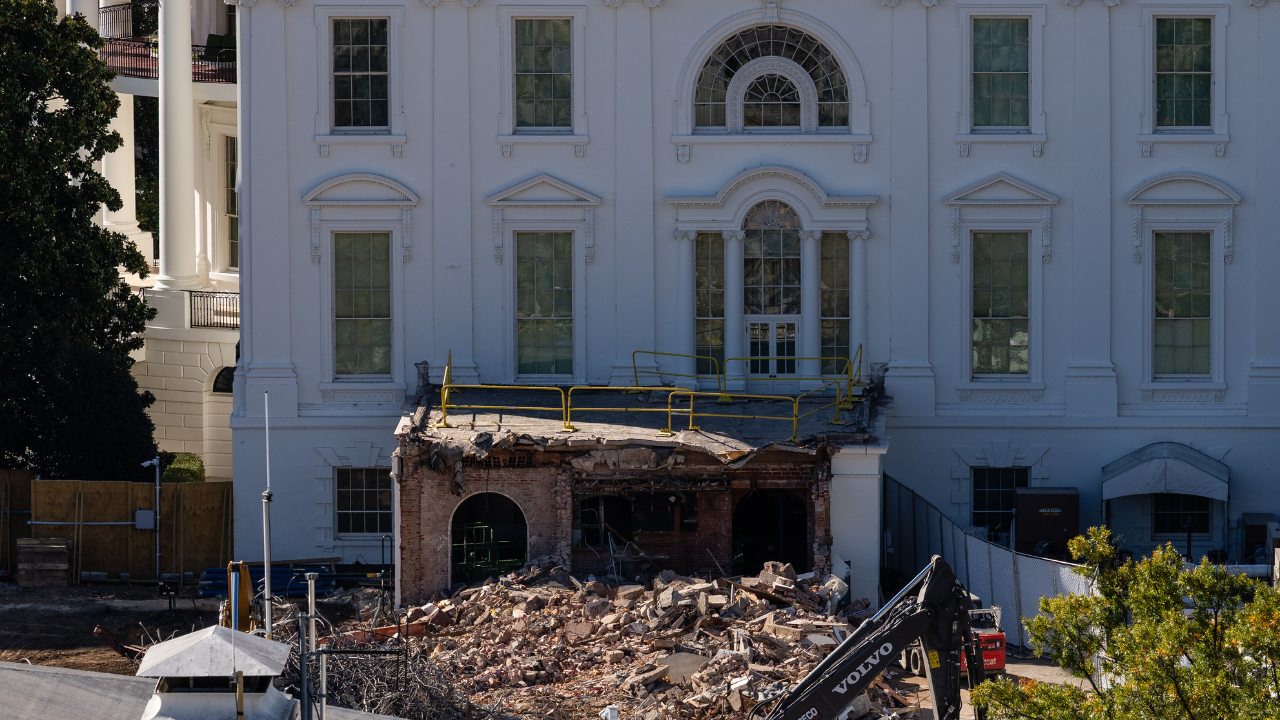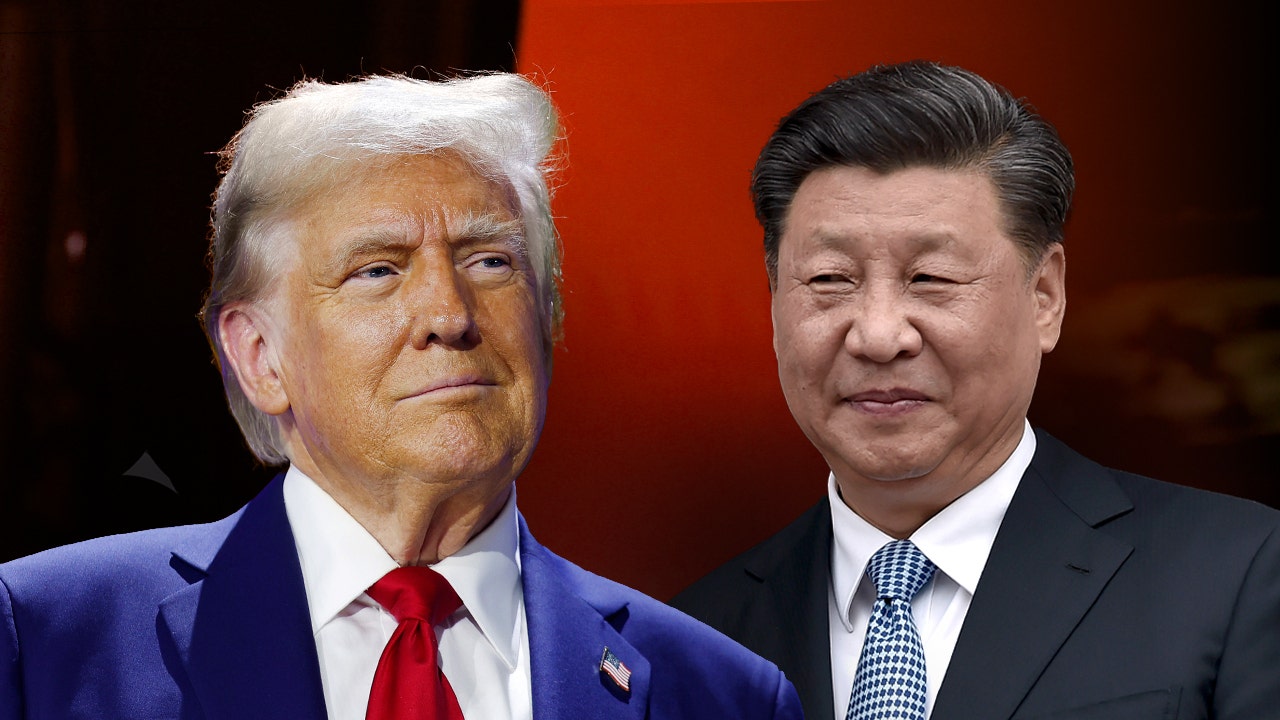World
Thailand’s latest push for same-sex marriage law

Bangkok, Thailand – Somphat Satanavat has big plans for his wedding day.
He has started looking for just the right hotel for the banquet, something in a neoclassical or colonial style. He knows the type of traditional Thai music he wants played and pondered the guest list.
But as a gay man in Thailand, where the law says that marriage must be between a man and a woman, it is still just a dream for him and his partner of 25 years.
For now, Somphat said, “I [am] planning just in my mind.”
That may soon change.
Last week the cabinet of the Thai government endorsed a bill that would amend the country’s Civil and Commercial Code to define marriage as between any two “individuals”.
If approved by Parliament, it would make Thailand the first country in Southeast Asia to legalise same-sex marriage and only the second in all of Asia, after Taiwan.
The government is hoping to move quickly and to hold the first of three votes the bill will need to pass to become law by next month.
“The prime minister [wants to] push [it] very much. He wants to see this bill appear in the Parliament debate as soon as possible,” government spokesperson Chai Watcharong told Al Jazeera.
If and when approved, “all legal rights after they marry will be 100 percent like man and woman,” he said.
“We consider that there is no reason to say no because people should have the right to decide their own way of living. Even though they are male and male, they love each other…so they should have the right,” he added.
Thailand has been here before
The previous two administrations each sponsored a same-sex union or marriage bill of their own. But they failed to make it out of the lower house before Parliament was dissolved to make way for national elections, setting the process back to square one each time.
LGBTQ rights advocates say this is the best chance Thailand has had yet to get the law passed.
Thailand’s current government is only months into a four-year mandate, which allows plenty of time to push the bill through barring a sudden coup or collapse. Major parties on both sides of the aisle are also in favour of the legislation.
Rapeepun Jommaroeng, an adviser and policy analyst for the Rainbow Sky Association of Thailand, which advocates for LGBTQ rights, expects pushback from some religious groups, mainly from the predominantly Buddhist country’s Christian and Muslim minorities. But, he says, they are unlikely to derail the bill.
“The country has been clear that we will not force any religious leaders or priests or monks to perform the [same-sex] marriage ceremony,” Rapeepun said.
“This law is not about forcing people to do things they don’t want to. This is purposefully broad to enable people to have equality,” he said.
“It’s just only to give the liberty and freedom for two people to be united.”
Rapeepun passage of the bill will also be eased by the fact that Thailand allows Islamic law to replace some national laws – except those dealing with defence or security – for Muslims who live in the southernmost provinces, where they are in the majority. That should make the Civil and Commercial Code, and any amendments, inapplicable to southern Muslims.
Chai, the government spokesperson, confirmed to Al Jazeera that the code does not apply to Muslims in those provinces.
For the rest of the country, the LGBTQ community say the bill portends a new dawn for Thailand, one that promises to bring them a greater sense of respect, equality and freedom to be themselves.
If passed, “it means that the country has progressed to another level of civil liberty or civil freedom to recognize the diversity in Thai society,” Rapeepun said.
“This is a time that they can celebrate and they can be themselves and they don’t need to lie any more.”
It can literally mean the difference between life and death, says Tunyawat Kamolwongwat, who was among the first four openly LGBTQ lawmakers elected to Thailand’s Parliament in 2019.
Re-elected this past May, he recalled a trip to the north of the country last year, when a young woman approached him to share the story of a close friend, who was gay, driven to suicide by his family’s rejection.
“He decided to kill himself because his family [did] not accept his life[style]. She told me that story and I [was] crying, and I think it will [soon] change so people can come out,” Tunyawat said.
Tunyawat said recognition of same-sex marriage would give LGBTQ people a voice they had long been denied.
“We can stand up and talk to the one who bullies us that I’m a human because we all have equal rights.”

The law would also allow same-sex couples to adopt children and open up a raft of other opportunities reserved for those who are married.
“It’s not only marriage status, to announce that they are a couple by law. But another thing is it’s related to social welfare and social services and other benefits combined with the law,” said Kath Khangpiboon, a trans woman and advocate who teaches gender studies at Thailand’s Thammasat University.
The benefits include tax deductions and the right for spouses to give each other medical consent, co-manage property and pass on wealth.
Such issues have weighed heavy on the mind of Somphat, who owns a confectionary company and worries about being able to pass on his stake in the operation to his life and business partner if he should die, or about his partner being denied to right to make medical decisions for him should he ever slip into a coma.
For LGBTQ employees of the government, marriage would also give them newfound access to a suite of public health benefits.
Most Thais seem ready
Somphat recalled a friend, a trans woman, who teaches at a government school whose partner needed thousands of dollars to pay for medical care to treat a life-threatening illness.
Because they could not get married, Somphat recounted, the woman could not add her partner to her health plan and they could not afford the treatment, and he died.
“I don’t want just to exchange the rings, have a beautiful day with flowers, with friends,” Somphat said. “We need … our country’s law [to] accept what I am,” he said.
Should Parliament pass the bill, advocates say the law can finally start catching up with Thailand’s image as a country that accepts, even embraces the LGBTQ community.
A 2022 survey by the government’s National Institute of Development Administration found that nearly 80 percent of those polled supported legalizing same-sex marriage.
Advocates blame the lack of progress to date on such a law on the outsize influence of conservative political donors or on the military, which aligns itself with the country’s deeply conservative monarchy and wields significant political power itself, whether directly or via proxy parties.
Rapeepun also ascribed the delay to pressure from some of Thailand’s neighbours.
In Southeast Asia, Brunei and Malaysia, both Muslim-majority countries, and Myanmar all outlaw gay or lesbian sex. He hopes Thailand will soon become a “beacon” of hope for those pining for change elsewhere, or at least a haven for those seeking respite from persecution for their sexual orientation.
Somphat is eager for the day that happens.
“The first day, if possible, I will go to the government office and sign up to get married,” he said.
Then, he added, “I can tell anyone, by the law he’s my husband… I think it will be a very happy time.”

World
Guillermo del Toro Says He’d ‘Rather Die’ Than Use Generative AI in His Films: ‘Not Interested’

During a recent sit-down with NPR, Guillermo del Toro asserted that he would “rather die” than use artificial intelligence, “particularly generative AI,” in any of his future films. He compared the growing cultural fascination surrounding the controversial tech to the “arrogance” displayed by the titular literary madman in his Netflix adaptation of “Frankenstein.”
“AI, particularly generative AI — I am not interested, nor will I ever be interested,” del Toro said. “I’m 61, and I hope to be able to remain uninterested in using it at all until I croak. … The other day, somebody wrote me an email, said, ‘What is your stance on AI?’ And my answer was very short. I said, ‘I’d rather die.’”
The “Pan’s Labyrinth” director explained that the true dangers aren’t with the technology itself, but with “natural stupidity,” which could drive the mishandling of AI. He added that “natural stupidity” is what pushes “most of the world’s worst features.” He went on to connect the character of Victor Frankenstein to those at the forefront of AI development.
“I did want it to have the arrogance of Victor [Frankenstein] be similar in some ways to the tech bros,” he said. “He’s kind of blind, creating something without considering the consequences and I think we have to take a pause and consider where we’re going.”
Del Toro’s “Frankenstein,” adapted from Mary Shelley’s 1818 novel of the same name, stars Jacob Elordi, Oscar Issac, Mia Goth, Christoph Waltz and Ralph Ineson. The film comes to Netflix on Nov. 7.
World
French officials arrest multiple suspects in Louvre crown jewel heist
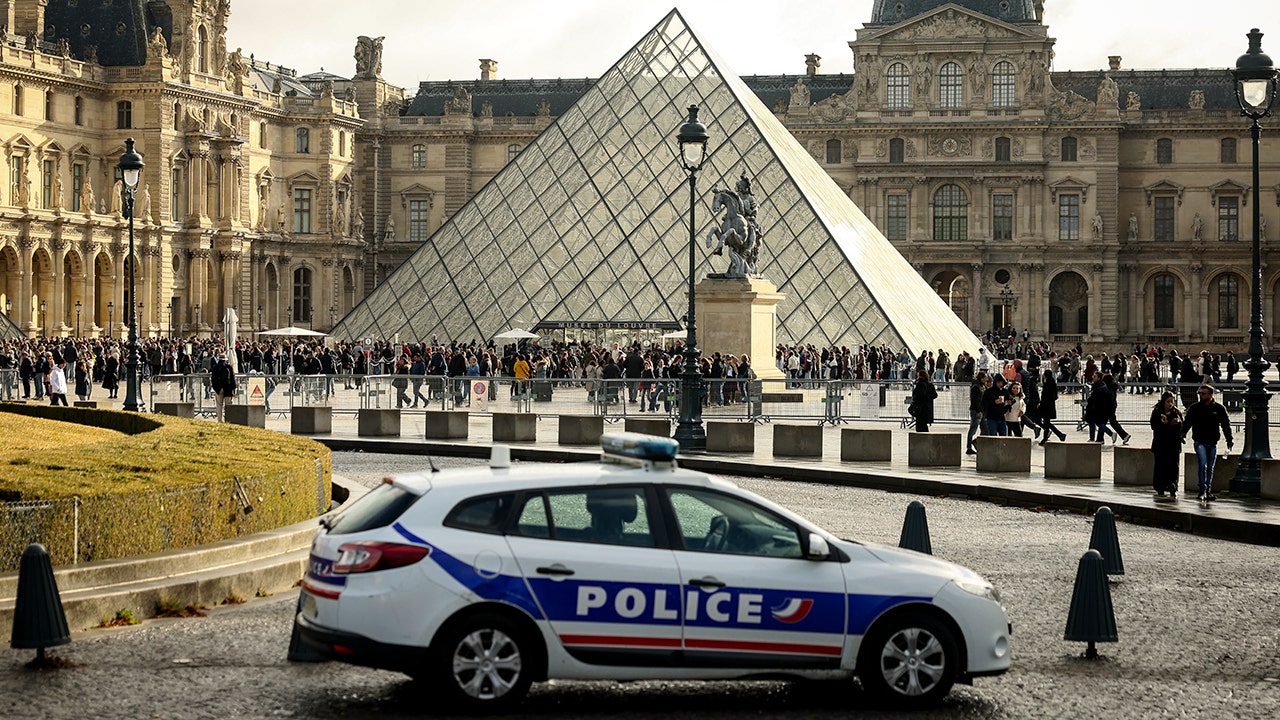
NEWYou can now listen to Fox News articles!
Multiple suspects have been arrested in connection with the theft of crown jewels from the Louvre Museum in Paris last weekend, French officials said Sunday.
Paris prosecutor Laure Beccuau said that investigators made the arrests on Saturday evening, including one man who was taken into custody as he was about to leave the country from Charles de Gaulle airport.
Beccuau did not confirm the number of arrests, though French media BFM TV and Le Parisien newspaper earlier reported that two suspects had been arrested and taken into custody. She did not say whether the jewels had been recovered.
Thieves took less than eight minutes to steal jewels valued at 88 million euros ($102 million) — a high-profile heist that sparked a national reckoning and stunned the world.
BRAZEN LOUVRE ROBBERY CREW MAY HAVE BEEN HIRED BY COLLECTOR, PROSECUTOR SAYS
A police car parks in the courtyard of the Louvre Museum, one week after the robbery, Sunday, Oct. 26, 2025 in Paris. (AP Photo/Thomas Padilla)
The crew of thieves used a basket lift to scale the Louvre’s façade, forced open a window, smashed display cases and fled, according to French officials. The Louvre’s director Laurence des Cars acknowledged there was a “terrible failure” in the museum’s security.
Beccuau said investigators from a special police unit in charge of armed robberies, serious burglaries and art thefts made the arrests. She said the premature leak of information could hinder the work of over 100 investigators “mobilized to recover the stolen jewels and apprehend all of the perpetrators.”
Beccuau said further details will be unveiled after the suspects’ custody period ends.

Police secured the area outside the Louvre Museum in Paris last week, where burglars used a truck-mounted moving lift to reach a second-floor window and steal royal jewelry valued at more than $100 million. (Dimitar Dilkoff/AFP via Getty Images)
LOUVRE DIRECTOR GRILLED ON SPECTACULAR SECURITY FAILURES, INCLUDING CAMERA POINTING AWAY FROM KEY BALCONY
French Interior minister Laurent Nunez praised the investigators for their tireless work, adding that they always had his “full confidence.”
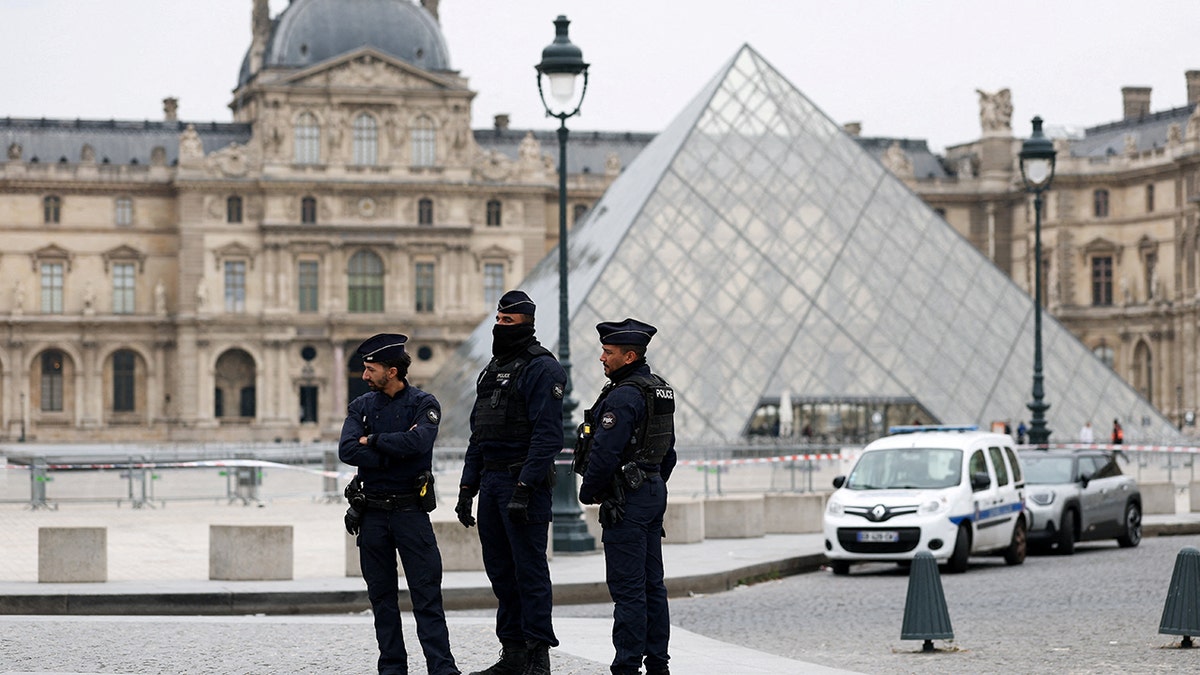
Police officers stand near the pyramid of the Louvre Museum after the theft of crown jewels on Oct. 19, 2025. (Gonzalo Fuentes/Reuters)
The thieves slipped away with a total of eight objects, including a sapphire diadem, necklace and single earring from a set linked to 19th-century queens Marie-Amélie and Hortense. They also stole an emerald necklace and earrings tied to Empress Marie-Louise, Napoleon Bonaparte’s second wife, and a reliquary brooch. Empress Eugénie’s diamond diadem and her large corsage-bow brooch — an imperial ensemble of rare craftsmanship — were also part of the loot.
Eugénie’s emerald-set imperial crown with more than 1,300 diamonds was later found outside the museum, damaged but recoverable.
This is a breaking news story; check back for updates.
The Associated Press contributed to this report.
World
Trump meets Brazil’s Lula at ASEAN summit, touts ‘pretty good deals’

Both countries’ negotiating teams will start ‘immediately’ to address US tariffs and sanctions, says Brazil’s President Lula.
Published On 26 Oct 2025
United States President Donald Trump and Brazil’s President Luiz Inacio Lula da Silva have held what Brazil described as a constructive meeting on the sidelines of the Association of Southeast Asian Nations (ASEAN) Summit in Kuala Lumpur, raising hope for improved relations after stinging US tariffs.
Lula said the Sunday meeting with Trump – who is an ally of his political rival, embattled former Brazilian President Jair Bolsonaro – was “great” and added that their countries’ negotiating teams would get to work “immediately” to tackle tariffs and other issues.
list of 3 itemsend of listRecommended Stories
“We agreed that our teams will meet immediately to advance the search for solutions to the tariffs and sanctions against Brazilian authorities,” Lula said in a message on X following the meeting.
Trump had linked the July tariff move – which brought duties on most Brazilian goods entering the US to 50 percent from 10 percent – to what he called a “witch hunt” against Bolsonaro, far-right leader who has been sentenced to 27 years in prison for attempting a coup after losing the 2022 presidential election.
Bolsonaro’s supporters rioted in the political centre of the country’s capital, evoking a riot by Trump’s supporters in Washington, DC on January 6, two years earlier.
The US government has also sanctioned numerous Brazilian officials, including Supreme Court Justice Alexandre de Moraes, who oversaw the trial that led to Bolsonaro’s conviction.
Ahead of the meeting on Sunday, though, Trump said he could reach some agreements with Lula and expected the two countries to enjoy strong ties despite his concerns about Bolsonaro’s fate.
“I think we should be able to make some pretty good deals for both countries,” Trump said.
Lula previously described the US tariff hike as a “mistake”, citing a $410bn US trade surplus with Brazil over 15 years.
‘Conclude negotiations in weeks’
Brazilian Foreign Minister Mauro Vieira said that negotiations would start immediately and that Brazil had requested a pause in tariffs while talks proceed, though it was unclear whether the US had agreed.
“We hope to conclude bilateral negotiations that address each of the sectors of the current American [tariffs on] Brazil in the near future, in a few weeks,” Vieira said.
He added that Lula also offered to help mediate between the US and Venezuela, where Washington has deployed its largest warship and threatened ground strikes targeting alleged drug cartels, operations Caracas has denounced as “fabricated” pretexts for war.
Bolsonaro was not mentioned during the Trump-Lula meeting, said Marcio Rosa, the executive secretary for Brazil’s Foreign Ministry.
Higher US tariffs on Brazilian goods have begun reshaping the global beef trade, pushing up prices in the US and encouraging triangulation via third countries such as Mexico, while Brazilian exports to China continue to boom.
-

 New York3 days ago
New York3 days agoVideo: How Mamdani Has Evolved in the Mayoral Race
-

 World6 days ago
World6 days agoIsrael continues deadly Gaza truce breaches as US seeks to strengthen deal
-

 News5 days ago
News5 days agoVideo: Federal Agents Detain Man During New York City Raid
-

 News5 days ago
News5 days agoBooks about race and gender to be returned to school libraries on some military bases
-

 Technology6 days ago
Technology6 days agoAI girlfriend apps leak millions of private chats
-

 News6 days ago
News6 days agoTrump news at a glance: president can send national guard to Portland, for now
-

 Politics6 days ago
Politics6 days agoTrump admin on pace to shatter deportation record by end of first year: ‘Just the beginning’
-

 Business6 days ago
Business6 days agoUnionized baristas want Olympics to drop Starbucks as its ‘official coffee partner’



